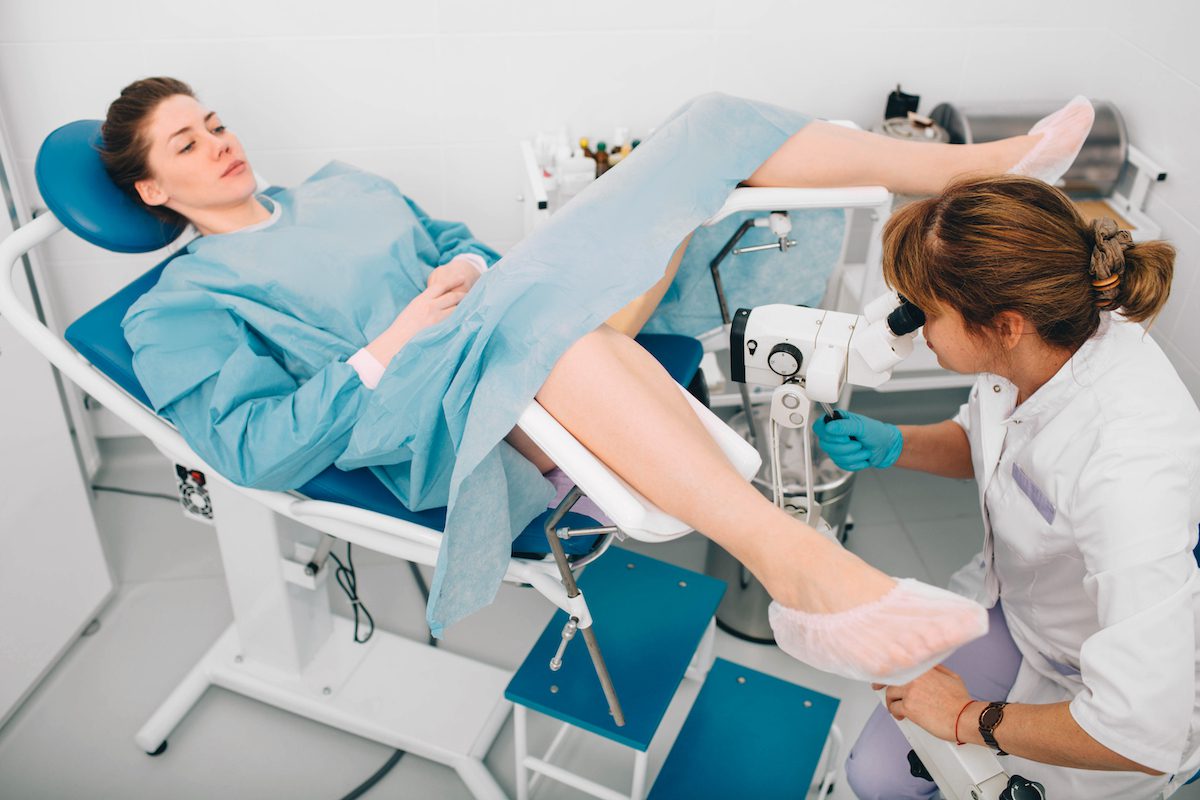✨Book online and enjoy a 5% discount on your first consultation
Home » Gynecology Services » Colposcopy Diagnostic


Colposcopy Diagnostic
A colposcopy is a medical procedure used to examine our vulva, vagina, and cervix for signs of any diseases, especially cancer. During the process, your doctor uses a special magnifying instrument known as a colposcope that gives a highly magnified and lighted view of the tissues in your vulva, vagina, and cervix.
It is very much similar to getting a Pap smear and hardly takes more than 10 minutes.
Possible Causes
You can be recommended a colposcopy if your pelvic exam or Pap test reveals any abnormalities. Colposcopy can help diagnose precancerous changes in the tissue of your vagina, cervix, and vulva. Besides, it also helps in diagnosing genital warts and inflammation of the cervix.
Risk Factors
Since coloscopy is not a treatment but an examination to check the probability of disease, there are no risk factors associated with it.
Signs and Symptoms
Colposcopy is recommended for people who have two consecutive abnormal pap tests. The pap smear test may show undetermined changes in atypical squamous cells.
Diagnosis
A cervical biopsy is usually done as a part of a colposcopy. Apart from this, no other diagnosis is required before or after colposcopy.
Treatment Options at 7DMC
7DMC has a leading obstetrics and gynecology department run by highly experienced gynecologists who are trained to carry out meticulous procedures like colposcopy.
The doctors at 7DMC would assist you in preparing for the test better so that it can be carried out with ease and help you understand the step you need to follow after the procedure.
A method like this should be supervised by certified medical professionals only and in a controlled environment, which this medical institution aims to provide for its clients.
Your doctor would recommend you stay away from any vaginal medicines, powders, foams, or creams at least 24-48 hours before the procedure.
It is also advised not to engage in vaginal sex or use tampons or any other product in your vagina for the same aforementioned period. In addition, try not to book a colposcopy appointment during the week of your period.
You also have to let your doctor know if you are pregnant or might be pregnant. In case you have a biopsy, you should ask for pain medications from the doctor.
During a colposcopy, you would be first asked to lie down on an exam table, fold your knees and place your heels on the sides at the end of the table. The doctor would then use a speculum to help keep your vagina open.
After this, he or she would dab a cotton swab in a solution and wipe your vulva, vagina, and cervix. It might leave a little burning sensation, but immediately let your doctor know if it is too discomforting. This process would help your doctor see any cells that look abnormal. Finally, a colposcope will be used to examine your vulva, vagina, and cervix.
If there is any suspicious area, your doctor will collect a tissue sample for further tests. He or she may use a sharp instrument for biopsy purposes to remove the pieces of the tissues. It can either be a cervical biopsy or a vaginal biopsy depending on your condition.
The colposcope is kept between your legs and as near to the vagina as possible, but it is never inserted into your body.
Some patients may experience infection, bleeding, and pelvic pain during and after this procedure. If it happens, get in touch with your doctor and follow his or her instructions.
If there was no biopsy done during your colposcopy, you could feel fine right away. You can resume your daily schedule after the procedure. However, you may experience little spotting for a couple of days. If the biopsy was done, then you may feel discomfort for 1 or 2 days. The doctor may prescribe pain medication to be used SOS.
Near Dubai Miracle Garden,
Diamond Business centre A,
1st Floor,
Arjan, AI Barsha,
Dubai.
Career@7DMC | Privacy Policy | Patient Data
WhatsApp us